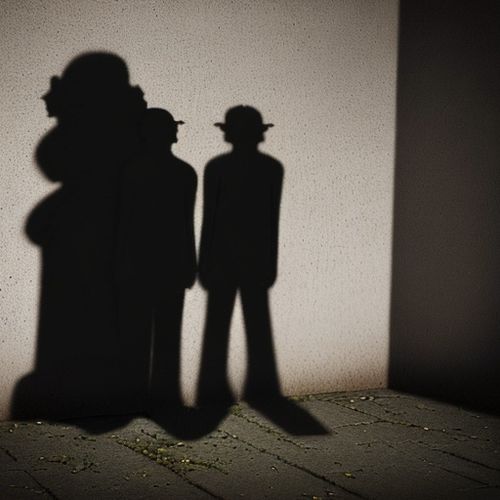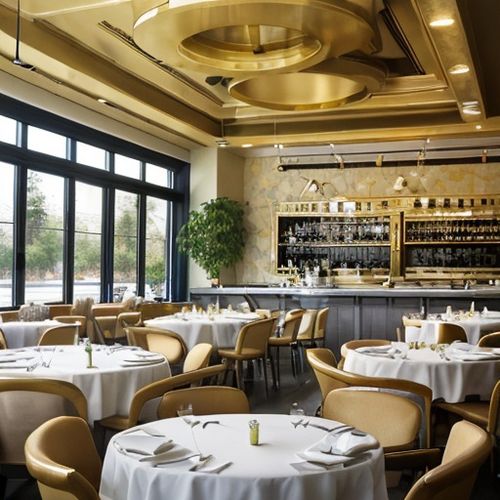In the realm where logic meets the unexplained, a Reddit thread sparked a conversation that delved into the irrational fears of the rational. The question posed by user Francucasteddaju, "People who aren't superstitious, what is something that still creeps you out or you won't mess with?" garnered over 3,600 replies, each one a window into the hidden anxieties that lurk beneath the surface of even the most skeptical minds.
At the heart of this discussion lies a fundamental human trait: the capacity to fear the unknown. Despite our rational minds and scientific understanding, there are moments when the shadows of superstition creep in, casting a chill over our otherwise logical thoughts. These fears are not just remnants of childhood tales but are deeply ingrained in our cultural and personal histories.
One user, a 33-year-old woman, confessed to a fear that many can relate to: the dark kitchen at night. "Whenever I turn the kitchen light out before bed, I still freak out and run to my room like a child," she wrote. This fear is not about ghosts but about the primal dread of the dark, a holdover from our evolutionary past when the night was fraught with danger. It's a fear that, despite our rational understanding, still sends a shiver down our spines.
Another user, Pennymostdreadful, shared a respect for Native American superstitions, particularly those related to the reservation. Growing up near reservations, they heard stories that left a lasting impression. "I did a late-night drive across the reservation once, and a giant white owl flew with my car for quite a while," they recounted. The reaction of their friend, who woke her grandmother to say a prayer, solidified their fear. "I haven't driven across the reservation at night alone since then," they admitted.
This respect for indigenous lore is echoed by SonicCephalopod, who was roommates with a Navajo man in college. "They had so many stories, but when it came to skin walkers, they would clam up fast," they wrote. The mysterious and often unspoken nature of these stories adds to their power, making them even more terrifying.
Healthcare workers, too, have their own set of irrational fears. Therealyoungnurse shared a common superstition among medical professionals: "You never, EVER say 'it's quiet today.'" This belief stems from the idea that tempting fate will lead to a chaotic shift. Similarly, the belief that overnight calls during a full moon are busier is a superstition that many healthcare workers swear by, even if there's no scientific basis.
In the tech world, Enigma1959 warns against messing with legacy code. "That's the code that existed before you, or from other people who worked on the program," they explained. The fear here is not of ghosts but of the potential chaos that can ensue from altering something that was built into the program. It's a respect for the unknown complexities that lie beneath the surface.
Even in the most mundane aspects of life, superstitions find a way to creep in. Some users shared simple yet powerful fears, like dangling a foot off the edge of the bed or looking at a mirror in the dark. These fears are often dismissed as silly, but they hold a certain power over us. They remind us that there are still things in this world that we cannot fully understand or control.
The fear of graveyards is another common thread. One user expressed discomfort with using graveyards for photo shoots, feeling that it's disrespectful. This fear is not about the supernatural but about the sanctity of a place meant for remembrance and respect. It's a reminder that some places carry a weight of history and emotion that should be honored.
In the American South, superstitions about painting porch roofs a specific shade of blue to ward off bad spirits are widespread. Another user shared a personal ritual of turning shoes in two different directions after taking them off by the door to confuse sinister beings. These practices, though recognized as irrational, provide a sense of comfort and control in an unpredictable world.
The fear of wishing death upon someone, as expressed by lizaraye, is another example of how superstitions can influence our behavior. Despite knowing that it might be coincidental, the fear of karma or retribution is enough to make us think twice about our words.
The story of the Bell Witch, a legend from Tennessee, is another example of how cultural folklore can shape our fears. One user shared how their mother claimed to have summoned the Bell Witch and ended up with scratches on her face. This story, passed down through generations, has a powerful hold on those who grew up with it.
In the end, these fears and superstitions are a testament to the complexity of the human mind. They remind us that even the most rational among us are not immune to the shadows of the unknown. Whether it's the dark kitchen, the mysterious reservation, or the legacy code, these fears are a part of what makes us human. They are the whispers of our past, the echoes of our ancestors, and the reminders that there are still mysteries in this world that we have yet to unravel.
So, the next time you find yourself running from the dark kitchen or avoiding the graveyard at night, remember that you are not alone. These fears are a part of our shared human experience, a reminder that even in a world of science and logic, there is still room for the unexplained. And perhaps, in acknowledging these fears, we can find a deeper understanding of ourselves and the world around us.

By Amanda Phillips/May 15, 2025

By John Smith/May 15, 2025

By Sophia Lewis/May 15, 2025

By Emma Thompson/May 15, 2025

By Jessica Lee/May 15, 2025

By Megan Clark/May 15, 2025

By Elizabeth Taylor/May 15, 2025

By Lily Simpson/May 15, 2025

By Michael Brown/May 15, 2025

By Amanda Phillips/May 15, 2025

By George Bailey/May 15, 2025

By James Moore/May 15, 2025

By David Anderson/May 15, 2025

By Joshua Howard/May 15, 2025

By Emma Thompson/May 15, 2025

By Noah Bell/May 15, 2025

By Elizabeth Taylor/May 15, 2025

By Megan Clark/May 15, 2025

By James Moore/May 15, 2025

By Victoria Gonzalez/May 15, 2025